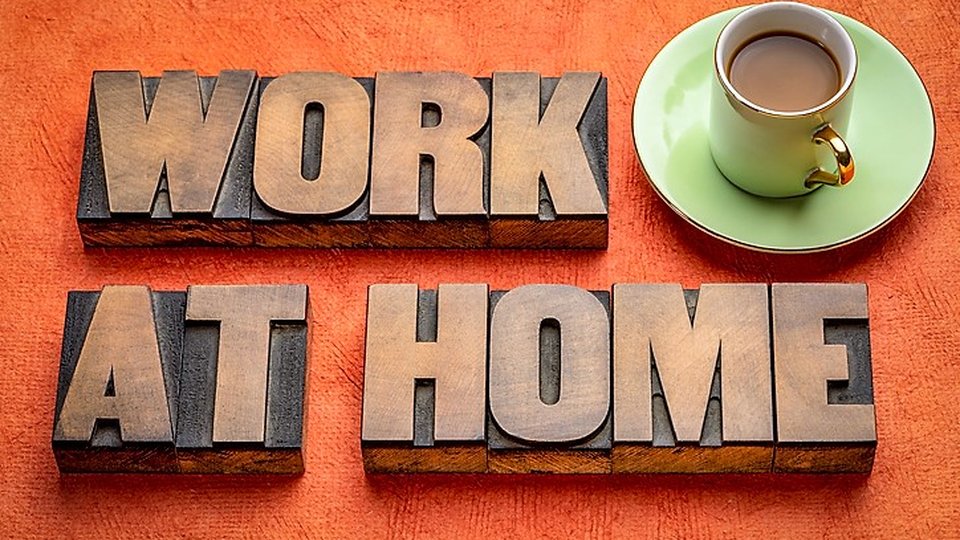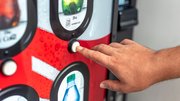Coffee Service
Pandemic hammers foodservice coffee sales; outlook uncertain
Long-term, foodservice will continue to struggle to recover from COVID-19, as consumers will increase their economy focused spending. The lingering impact of social distancing requirements, a recession and the closure of foodservice outlets are all playing a role, according to a Euromonitor International researcher.

May 25, 2020 by Elliot Maras — Editor, Kiosk Marketplace & Vending Times
COVID-19 has impacted consumer behavior, and coffee consumption habits are also changing.
The pandemic is changing consumer willingness to buy coffee at foodservice channels, said Matthew Barry, a beverage consultant for Euromonitor International, during a recent webinar sponsored by the National Coffee Association.
During the webinar, titled "COVID-19 and the outlook for U.S. Coffee," Barry cited both short- and long-term impacts of the COVID-19 crisis on the coffee industry.
Short-term, foodservice and institutional occasions have moved to retail. Overall, consumer spending is down as unemployment reaches historic highs. Pre-COVID-19 retail coffee volume was expected to grow only 0.8% this year, Barry said, but is now predicted to grow 5.3%.
"We see, of course, a pullback of consumer spending," he said.
Foodservice channels to continue to struggle
Long-term, foodservice will continue to struggle to recover, as consumers will increase their economy focused spending. The lingering impact of social distancing requirements, a recession and the closure of foodservice outlets are all playing a role.
Offices, schools, company cafeterias and restaurants are hemorrhaging vast numbers of occasions into retail, and specifically to the home, Barry said.
Total U.S. foodservice coffee consumption in the U.S. will be about half of what the company previously predicted this year, Barry said. Foodservice coffee volume is not expected to reach 2019 levels through 2024.
"Foodservice remains below its full-time potential for some time to come," he said. "People are not going out with the same fervor as they did pre-COVID. Barring massive government aid, we're going to see a lot of coffee shops shut down in the next year or so."
Looking at institutional channels, Barry said 1.5 million adult students moved from the school cafeteria to the home while 2 million adults moved from the office to the home. Homes have experienced a 4.5% gain in monthly coffee consumption purely as a result of these factors.
At what point will these channel changes reverse? "A lot of these are not going to move back any time soon," he said. Major universities have moved to in-home classes for the coming fall. Twitter is among the major businesses that has announced its employees can work from home permanently.
"Long-term we're probably never going to see all these people move back into their old occasions," he said.
Impact on convenience services?
While Barry did not specifically address convenience services, his remarks about COVID-19's impact on foodservice indicate the virus will affect convenience services in two ways. With fewer people in the workplace, workplace sales will suffer, as most convenience services operators can already attest.
At the same time, as the pandemic drives commercial foodservice establishments out of business, convenience services operators will face less competition from other foodservice channels.
Value based coffee buying to grow
Barry did predict that less expensive coffee stands to grow on account of the pandemic.
The "premiumization" of coffee in recent years came from rising incomes combined with coffee shops educating consumers about good coffee.
"Consumers, even if they're not scared of contracting the virus, will still stay home and in significant numbers if they need to save money in a recessionary environment, and that is going to benefit less expensive retail options over foodservice," he said.
On the positive side, coffee consumption has historically resisted the effects of recession. Consumers will change what they drink and where, he said, but not whether or not they drink coffee.
In addition, he said, some forms of premiumization do well in a recession.
"Pod sales peak during the most severe periods of the recession," he said, while looking at a chart of pod sales from 2005 to 2015 in Greece, Spain, Portugal and Italy. "When they were saving money, they didn't go all the way down the value chain, they still wanted to have good quality coffee, so they were willing to splurge a little more with their retail spending habits. We are going to see a willingness to spend more at home."
Sustainability to suffer
People will be less concerned about the environment on account of COVID-19, i.e., sustainable coffee, Barry said. Hence, monetary incentives to use reusables will become more important in a recessionary economy,.
"The war on plastics takes a back seat," he said. The return to disposable plastic cups and bags could be long lasting.
Consumers are still concerned about the environment, he said, but they now have more things to worry about. "Above all, increased concerns about sanitation," he said.
The outlook for cold coffee is hard to predict since it has never experienced a recession.
People will have reduced budgets and higher stress levels.
Big uncertainties include:
- How long will the outbreak last, and will there be secondary waves?
- How deep will the recession be?
- When will restrictions on foodservice lift?
- Is harvesting and transport under threat?
"Are those supply chains secure?" Barry further asked. "Can the harvest take place with minimal disruption?"
For an update on the pandemic's impact on convenience services, click here.
About Elliot Maras
Elliot Maras is the editor of Kiosk Marketplace and Vending Times. He brings three decades covering unattended retail and commercial foodservice.
 ChatGPT
ChatGPT Grok
Grok Perplexity
Perplexity Claude
Claude






